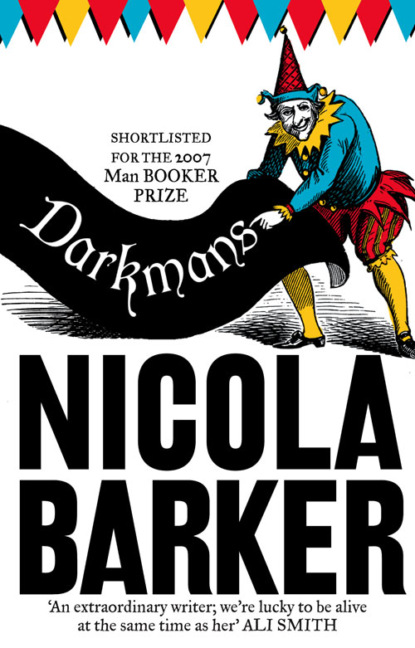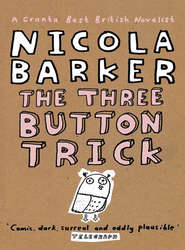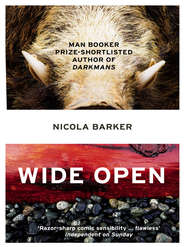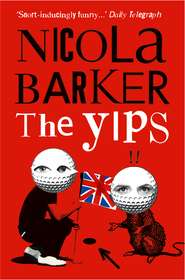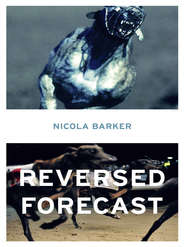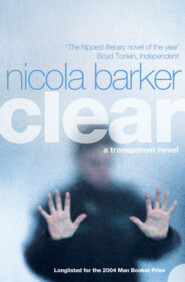По всем вопросам обращайтесь на: info@litportal.ru
(©) 2003-2024.
✖
Darkmans
Настройки чтения
Размер шрифта
Высота строк
Поля
They had been preserved. They had been maintained. They had been entrusted. They had been lost.
BUT WHERE THE HELL ARE THEY?
WHERE DID THEY GO?
WHERE?
WHERE?!
It had all been in vain. And nobody really cared (it later transpired, or if they did, they stopped caring, eventually – they had to, to survive it), except for Beede – who hadn’t really cared that much in the first place – but who had done something bold, something decisive, something out of the ordinary; Beede – who had committed himself, had become embroiled, then engrossed, then utterly preoccupied, then thoroughly –
Irredeemably
– fucked up and casually (like the past itself) discarded.
And no, in the great scheme of things, it didn’t amount to very much. Just some old beams, some rotten masonry, some traditional tiles. But Beede suddenly found that he’d lost not only those tiles, but his own rudimentary supports. His faith. The roof of Beede’s confidence had been lifted and had blown clean away. His optimism. He had lost it. It just went.
And nothing – nothing – had felt the same, afterwards. Nothing had felt comfortable. Nothing fitted. A full fifteen years had passed, and yet – and at complete variance with the cliché – for Beede time had been anything but a great healer.
Progress, modernity (all now dirty words in Beede’s vocabulary) had kicked him squarely in the balls. I mean he hadn’t asked for much, had he? He’d sacrificed the Spider Orchid, hadn’t he? A familiar geography? He’d only wanted, out of respect, to salvage…to salvage…
What?
A semblance of what had been? Or was it just a question of…was it just a matter of…of form? Something as silly and apparently insignificant as…as good manners?
There had been one too many compromises. He knew that much for certain. The buck had needed to stop and it never had. It’d never stopped. So Beede had put on his own brakes and he had stopped. The compromise culture became his anathema. He had shed his former skin (Mr Moderate, Mr Handy, Mr Reasonable) and had blossomed into an absolutist. But on his own terms. And in the daintiest of ways. And very quietly –
Shhh!
Oh no, no, no, the war wasn’t over –
Shhh!
Beede was still fighting (mainly in whispers), it was just that – by and large – they were battles that nobody else knew about. Only Beede. Only he knew. But it was a hard campaign; a fierce, long, difficult campaign. And as with all major military strategies, there were gains and there were losses.
Beede was now sixty-one years of age, and he was his own walking wounded. He was a shadow of his former self. His past idealism had deserted him. And somehow – along the way – he had lost interest in almost everything (in work, in family), but he had maintained an interest in one thing: he had maintained an interest in that old mill.
He had become a detective. A bloodhound. He had sniffed out clues. He had discovered things; stories, alibis, weaknesses; inconsistencies. He had weighed up the facts and drawn his conclusions. But he had bided his time (time was the one thing he had plenty of – no rush; that was the modern disease – no need to rush).
Then finally (at last) he had apportioned blame. With no apparent emotion, he had put names to faces (hunting, finding, assessing, gauging). And like Death he had lifted his scythe, and had kept it lifted; waiting for his own judgement to fall; holding his breath – like an ancient yogi or a Pacific pearl diver; like the still before the storm, like a suspended wave: freeze-framed, poised. He held and he held. He even (and this was the wonderful, the crazy, the hideous part) found a terrible equilibrium in holding.
Beede was the vengeful tsunami of history.
But even the venerable could not hold indefinitely.
‘You know what?’ Kane suddenly spoke, as if waking from a dream. ‘I’d like that.’
Beede didn’t stir from his book.
‘I’d actually like it if you drew me a picture. Do you have a pencil?’
Kane was twenty-six years old and magnificently quiescent. He was a floater; as buoyant and slippery as a dinghy set adrift on a choppy sea. He was loose and unapologetically light-weight (being light-weight was the only thing he ever really took seriously). He was so light-weight, in fact, that sometimes (when the wind gusted his way) he might fly into total indolence and do nothing for three whole days but read sci-fi, devour fried onion rings and drink tequilla in front of a muted-out backdrop of MTV.
Kane knew what he liked (knowing what you liked was, he felt, one of the most important characteristics of a modern life well lived). He knew what he wanted and, better yet, what he needed. He was easy as a greased nipple (and pretty much as moral). He was tall (6' 3", on a good day), a mousy blond, rubber-faced, blue-eyed, with a full, cruel mouth. Almost handsome. He dressed without any particular kind of distinction. Slightly scruffy. Tending towards plumpness, but still too young for the fat to have taken any kind of permanent hold on him. He had a slight American accent. As a kid he’d lived for seven years with his mother in the Arizona desert and had opted to keep the vocal cadences of that region as a souvenir.
‘Come to think of it, I believe I may actually…’
Kane busily inspected his own trouser pockets, then swore under his breath, sat up and glanced around him. A waitress was carrying a tray of clean glasses from somewhere to somewhere else. ‘Excuse me…’ Kane waved at her, ‘would you happen to have a pencil on you?’
The waitress walked over. She was young and pretty with a mass of short, unruly blonde hair pinned back from her neat forehead by a series of precarious-looking, brightly coloured kirby grips. ‘I might have one in my…uh…’
She slid the tray of glasses on to the table. Kane helpfully rearranged his large Pepsi and his cherry danish (currently untouched) to make room for it. Maude (the strangely old-fashioned name was emblazoned on her badge) smiled her thanks and slid her hand into the pocket of her apron. She removed a tiny pencil stub.
‘It’s very small,’ she said.
Kane took the pencil and inspected it. It was minuscule.
‘It’s an HB,’ he said, carefully reading its chewed tip, then glancing over at Beede. ‘Is an HB okay? Is it soft enough?’
Beede did not look up.
Kane turned back to the waitress, who was just preparing to grapple with the tray of glasses again.
‘Before you pick that up, Maude,’ Kane said, balancing his cigarette on the edge of his plate, ‘you wouldn’t happen to have a piece of paper somewhere, would you?’
‘Uh…’
The waitress pushed her hand back into her apron and removed her notepad. She bit her lip. ‘I have a pad but I’m not really…’
Kane put out his hand and took the pad from her. He flipped though it.
‘The paper’s kind of thin,’ he said. ‘What I’m actually looking for is some sort of…’
He mused for a moment. ‘Like an artist’s pad. Like a Daler pad. I don’t know if you’ve heard of that brand name before? It’s like an art brand…’
The waitress shook her head. A kirby grip flew off. She quickly bent down and grabbed it.
‘Oh. Well that’s a shame…’
The waitress straightened up again, clutching the grip.
Kane grinned at her. It was an appealing grin. Her cheeks reddened. ‘Here…’ Kane said, ‘let me…’
He leaned forward, removed the kirby grip from her grasp, popped it expertly open, beckoned her to lean down towards him, then applied it, carefully, to a loose section of her fringe.
‘There…’
He drew back and casually appraised his handiwork. ‘Good as new.’





